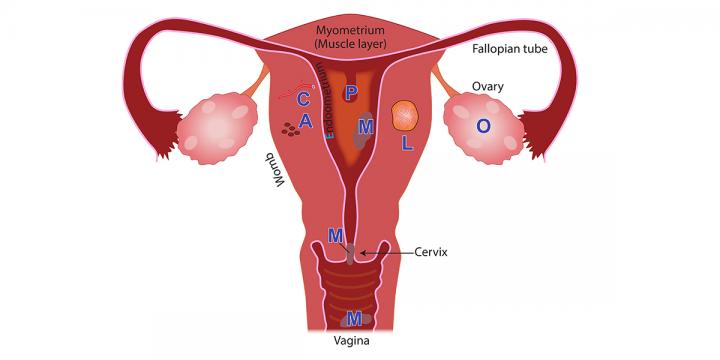Best Gynaecologist in Miyapur

Menstruation is a natural and essential aspect of a woman's reproductive health. However, for many individuals, the monthly cycle can be accompanied by a variety of challenges known as Menstrual Disorders. In this comprehensive guide, we delve into the intricate details of menstrual disorders, shedding light on their causes, symptoms, diagnosis, and treatment options. Whether you're experiencing irregular periods, debilitating cramps, or heavy bleeding, this article aims to empower you with knowledge and resources to navigate through these challenges with confidence and resilience.
Understanding Menstrual Disorders
Menstrual disorders encompass a wide range of conditions that affect the normal functioning of the menstrual cycle. From irregular periods to excessive bleeding and severe pain, these disorders can significantly impact a woman's physical and emotional well-being. Understanding the different types of menstrual disorders is crucial for early detection and effective management.Menstrual disorders refer to any abnormalities or irregularities in the menstrual cycle that deviate from the typical pattern of menstruation. While occasional variations in menstrual flow and duration are normal, persistent changes or disruptive symptoms may indicate an underlying disorder.
Common Types of Menstrual Disorders
- Dysmenorrhea: Characterized by severe menstrual cramps and pelvic pain.
- Menorrhagia: Involves excessively heavy or prolonged menstrual bleeding.
- Amenorrhea: Absence of menstrual periods, which may be primary or secondary.
- Polycystic Ovary Syndrome (PCOD): A hormonal disorder causing irregular periods and ovarian cysts.
- Premenstrual Syndrome (PMS): Symptoms like mood swings, bloating, and breast tenderness before menstruation.
Causes of Menstrual Disorders
-
Hormonal Imbalance:Fluctuations in hormone levels, particularly estrogen and progesterone, can disrupt the normal menstrual cycle, leading to irregularities in menstruation.
- Structural Issues:Anatomical abnormalities or structural problems within the reproductive organs, such as fibroids or polyps, can interfere with menstruation and cause complications.
- Recognizing the signs and symptoms of Menstrual Disorders Is crucial for early intervention and appropriate medical care.
- Irregular Periods:Menstrual cycles that vary significantly in length or consistency from one month to another may indicate an underlying hormonal imbalance or other health issues.
- Heavy Bleeding:Excessive menstrual bleeding, known as menorrhagia, can result in prolonged periods, fatigue, and iron deficiency anemia if left untreated.
- Severe Cramps:Intense pelvic pain and cramping during menstruation, medically referred to as dysmenorrhea, can interfere with daily activities and quality of life.
Treatment Options for Menstrual Disorders
-
Medications:Nonsteroidal anti-inflammatory drugs (NSAIDs) may be prescribed to relieve pain and inflammation associated with menstrual cramps. Hormonal medications, such as birth control pills or hormone replacement therapy, can help regulate menstrual cycles and manage symptoms.
-
Hormonal Therapy:For conditions like PCOS or endometriosis, hormonal therapy may be recommended to balance hormone levels and reduce symptoms.
-
Surgical Intervention:In cases of severe or persistent menstrual disorders, surgical procedures such as endometrial ablation or hysterectomy may be considered as a last resort to manage symptoms and improve quality of life.
-
Lifestyle Changes to Manage Menstrual Disorders:In addition to medical interventions, adopting healthy lifestyle habits can help manage menstrual disorders and promote overall well-being.
-
Dietary Modifications:Eating a balanced diet rich in nutrients, fiber, and hydration can support hormone balance and alleviate menstrual symptoms.
-
Stress Reduction Techniques: Practicing stress-reducing activities such as yoga, meditation, or deep breathing exercises can help mitigate the impact of stress on hormonal health and menstrual cycles.
-
Exercise Routine:Regular physical activity can help regulate hormone levels, improve circulation, and reduce the severity of menstrual cramps and other symptoms.
symptoms and coping with the challenges of menstrual disorders can sometimes affect work performance and productivity. Open communication with employers and implementing accommodations when necessary can help alleviate
Conclusion
In conclusion, menstrual disorders are common yet often misunderstood conditions that can significantly impact a woman's health and quality of life. By raising awareness, providing education, and offering support, we can empower individuals affected by menstrual disorders to seek timely medical care, explore treatment options, and adopt lifestyle strategies to manage their symptoms effectively. Remember, you're not alone in this journey, and help is available to guide you towards better menstrual health and well-being. Consult our Best Doctor for Menstrual Disorders Treatment in Miyapur.
